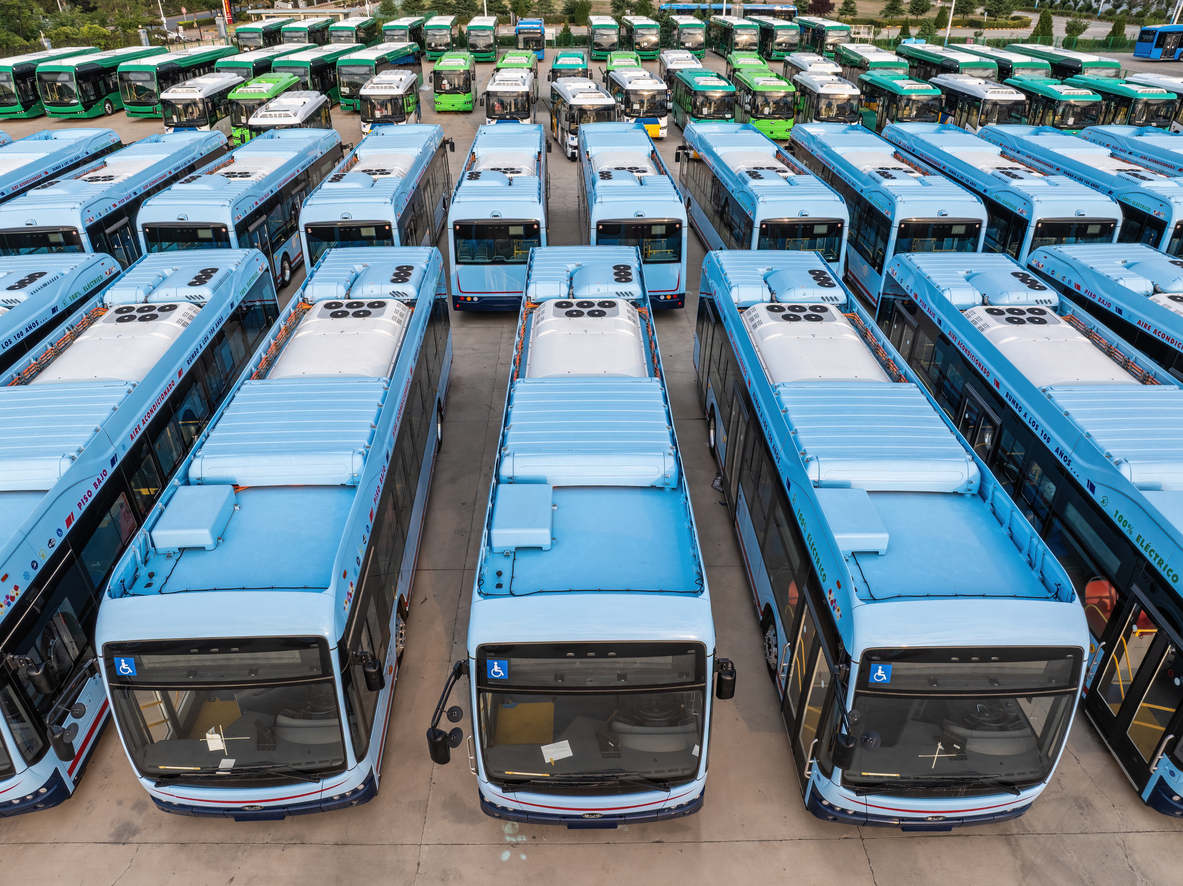Unveiling the Challenges and Opportunities of Nigeria’s Transport Industry
Unveiling the Challenges and Opportunities of Nigeria’s Transport Industry
Welcome aboard, fellow adventurers! Today, we embark on a thrilling journey through the bustling streets of Nigeria’s transport industry. Get ready to uncover the hidden challenges and untapped opportunities that lie beneath this fast-paced realm. From crowded roads teeming with colorful taxis to innovative tech solutions revolutionizing transportation, join us as we navigate through the twists and turns of an industry poised for transformation. So buckle up and prepare for an exhilarating ride as we unveil the many secrets that make Nigeria’s transport sector both challenging and brimming with potential!
Introduction to Nigeria’s Transport Industry
Introduction to Nigeria’s Transport Industry
Nigeria, also known as the “Giant of Africa,” is a country located in West Africa with a population of over 200 million people. With its vast landmass and growing population, the transportation industry plays a crucial role in connecting people and businesses across different regions. The transport sector in Nigeria is one of the largest on the continent, contributing significantly to the country’s economy.
Modes of Transportation
The transportation system in Nigeria consists of various modes, including road, rail, air, and water transport. Road transportation is most prominent due to its accessibility and affordability for most Nigerians. However, it faces significant challenges such as poor road conditions and traffic congestion. Rail transport is also gaining momentum with ongoing projects to modernize and expand the existing railway network.
Air travel has seen rapid growth in recent years due to increased demand for domestic and international flights. The Nigerian aviation industry has attracted investments from both local and foreign carriers, leading to improved services and increased competition.
Water transport remains an essential mode of transportation for cargo shipments along coastal areas and inland waterways. It plays a vital role in moving agricultural products from rural areas to urban centers.
Challenges Facing Nigeria’s Transport Industry
Despite its importance, the transport sector in Nigeria faces several challenges that hinder its growth potential. One major challenge is inadequate infrastructure development. Many roads are poorly maintained or non-existent in rural areas, making it difficult for goods and people to reach their destinations efficiently.
Historical Context of Transportation in Nigeria
The transportation industry in Nigeria dates back to pre-colonial times when the primary modes of transportation were walking, animal-drawn carts and canoes. The introduction of motorized vehicles during the colonial era brought about significant changes in the country’s transportation system.
During the early years of independence, there was a heavy reliance on railway transportation as it was considered the most efficient means of moving people and goods across long distances. However, due to inadequate maintenance and mismanagement, the railway network gradually declined, leading to a shift towards road transportation.
In the 1970s and 1980s, there was a rapid increase in private car ownership, which resulted in congested roads and increased accidents. The government responded by building more roads and highways but failed to invest in proper traffic management systems.
The discovery of oil in Nigeria also had a major impact on transportation. It led to an influx of wealth that resulted in an increase in private car ownership and neglect for public transportation. This contributed to severe congestion on major highways and limited access for low-income earners who could not afford private cars.
In recent years, there have been efforts made by the Nigerian government to improve its transport infrastructure through various initiatives such as:
1) Road Rehabilitation Projects: The Federal Ministry of Works has undertaken several road rehabilitation projects aimed at improving connectivity between different regions within Nigeria.
Challenges Faced by the Transport Industry in Nigeria
The transport industry in Nigeria has long been faced with numerous challenges that have impeded its growth and development. These challenges range from poor infrastructure to inadequate policies and regulations, as well as financial constraints. In this section, we will delve deeper into the specific challenges faced by the transport industry in Nigeria.
1. Poor Infrastructure:
One of the major challenges facing the transport industry in Nigeria is poor infrastructure. The country’s road network is poorly maintained, with many roads being riddled with potholes and cracks. This not only hinders the smooth flow of traffic but also leads to increased wear and tear on vehicles, resulting in higher maintenance costs for transport operators. Furthermore, there is a lack of proper signage and lighting on most roads, making it difficult for drivers to navigate safely at night.
In addition to road infrastructure, Nigeria’s rail network is also inadequate and outdated. Most rail lines are over 50 years old and are not properly maintained, leading to frequent breakdowns and delays. This makes it difficult for goods to be transported efficiently across different regions of the country.
2. Inadequate Policies and Regulations:
Another challenge facing the transport industry in Nigeria is the lack of adequate policies and regulations. Many laws governing transportation were enacted decades ago and have not been revised or updated to reflect current realities in the sector. This has resulted in a regulatory framework that is fragmented, inconsistent, and often ineffective.
– Inadequate Infrastructure and Maintenance
Inadequate infrastructure and maintenance is one of the major challenges facing Nigeria’s transport industry. The country’s transportation system has been struggling to keep up with the growing population and rapid urbanization, resulting in inadequate infrastructure and poor maintenance of existing facilities.
One of the main issues that contribute to this challenge is the lack of investment in the sector. Despite being one of Africa’s largest economies, Nigeria has not prioritized investing in its transportation infrastructure. This has led to a situation where roads, railways, airports, and seaports are poorly maintained, causing significant disruptions in the movement of people and goods.
The road network is essential for transporting goods from one location to another within Nigeria. However, many roads are in a state of disrepair due to insufficient funding for maintenance. This results in higher costs for businesses as they have to spend more on vehicle repairs and fuel consumption due to poor road conditions. Furthermore, inadequate infrastructure also leads to longer travel times and delays in delivery schedules.
Similarly, the railway system in Nigeria faces similar challenges due to underinvestment over several decades. The rail network was once an efficient means of transportation but has since deteriorated significantly. Lack of proper maintenance has resulted in frequent breakdowns and accidents, making it unreliable for both passengers and freight transport.
– Poor Regulation and Governance
Poor regulation and governance have been major challenges faced by Nigeria’s transport industry. The lack of effective policies, inadequate infrastructure, and corrupt practices have hindered the growth and development of the sector. In this section, we will delve deeper into these issues and discuss their impact on the industry.
One of the primary reasons for poor regulation in Nigeria’s transport industry is the absence of a comprehensive regulatory framework. The existing laws and regulations are outdated and do not address the current needs of the sector. This has led to a fragmented regulatory environment with overlapping responsibilities among various agencies, resulting in confusion and inefficiency.
Moreover, there is no single authority responsible for overseeing all modes of transportation in Nigeria. This has resulted in a lack of coordination between different modes such as road, rail, air, and water transport. As a result, there is no integrated approach to planning or developing transportation networks, which often leads to duplication of efforts and wastage of resources.
The inadequate infrastructure is another significant challenge facing the transport industry in Nigeria. Poor road networks, congested ports, outdated railway systems, and limited air traffic control facilities are some examples of this issue. These deficiencies not only hinder efficient movement but also increase travel time and costs for businesses and individuals.
Corruption is another pressing challenge that plagues Nigeria’s transport sector. Bribery and extortion are rampant among law enforcement officials at checkpoints along roads or at ports. This increases operating costs for businesses involved in transportation while negatively impacting consumer prices.
– Safety Concerns
Safety is a major concern in any transport industry, and Nigeria is no exception. In fact, safety concerns have been one of the biggest challenges facing the country’s transportation sector for decades. Unveiling these concerns and addressing them head-on is crucial not only for the growth and development of the industry but also for the well-being and security of passengers and road users.
One of the main safety concerns in Nigeria’s transport industry is poor infrastructure. The roads are often poorly maintained, with potholes, cracks, and uneven surfaces making it difficult for vehicles to navigate safely. This can result in accidents, especially during heavy rainfall when visibility is reduced, or during rush hour when traffic congestion increases. Additionally, many roads lack proper lighting at night, making it more dangerous to travel after dark.
Another significant safety issue in Nigeria’s transport sector is overloading of vehicles. Many public buses and commercial trucks are often overloaded with passengers or goods beyond their capacity. This not only puts strain on the vehicle’s mechanical components but also compromises its stability on the road. Overloaded vehicles are more prone to accidents as they have longer stopping distances and are less maneuverable.
– Lack of Integration and Coordination
The Nigerian transport industry has been facing numerous challenges in recent years, hindering its growth and development. One of the major issues that have been plaguing this sector is the lack of integration and coordination among different modes of transportation.
Firstly, there is a lack of seamless connectivity between different modes of transportation such as road, rail, air, and waterways. This leads to inefficiency in the overall transportation system and increases the time and cost for both passengers and cargo. For instance, a passenger traveling from Lagos to Abuja would have to switch between multiple modes of transport with no proper coordination or synchronization between them. This not only adds to the travel time but also causes inconvenience for travelers.
Moreover, there is a lack of proper communication and collaboration among different transport operators in Nigeria. The absence of a unified platform for information sharing makes it difficult for passengers to plan their journey efficiently. In some cases, buses or trains may arrive at their destination late due to delays caused by poor coordination between various stakeholders in the transport industry.
Furthermore, inadequate infrastructure and capacity constraints are major obstacles in achieving integration and coordination within Nigeria’s transport industry. The road network is often congested due to heavy traffic volumes, resulting in delays and higher costs for businesses involved in transporting goods across different regions. Similarly, rail networks suffer from old tracks and insufficient maintenance which lead to frequent breakdowns causing disruptions in services.
Opportunities for Growth and Improvement
The transport industry in Nigeria is one that has experienced significant growth and development over the years. However, like any other industry, it also faces its fair share of challenges. Despite these challenges, there are also numerous opportunities for growth and improvement within the Nigerian transport sector.
Firstly, one of the key opportunities for growth lies in improving the existing infrastructure. The road network in Nigeria is extensive but often poorly maintained, leading to frequent traffic congestion and delays. By investing in better roads and bridges, as well as implementing effective maintenance strategies, transportation time can be reduced significantly. This would not only benefit commuters but also increase efficiency and productivity for businesses reliant on transportation.
Moreover, there is a great potential for investment and innovation in new modes of transportation such as high-speed rail networks and modernized public transit systems. These could greatly improve connectivity between different regions of the country and provide faster means of travel for both passengers and goods. With proper planning and execution, these projects have the potential to significantly boost economic growth while reducing carbon emissions.
Another opportunity for growth lies in embracing technology within the transport industry. The rise of ride-hailing apps like Uber and Bolt has already transformed the way people move around major cities in Nigeria. However, there is still room for further digitization within the industry – from online ticketing systems to real-time tracking of vehicles – which would not only enhance convenience but also improve safety measures.
– Potential for Private Investment
The transport industry in Nigeria has long been a key sector for economic growth and development. However, over the years, it has faced significant challenges that have hindered its full potential. One such challenge is the lack of private investment in the sector. In this section, we will delve into the potential for private investment in Nigeria’s transport industry and how it can address some of the major challenges facing the sector.
Firstly, it is important to understand why there has been a lack of private investment in Nigeria’s transport industry. One of the main reasons is the perception that investing in this sector is risky. This perception stems from several factors such as poor infrastructure, inadequate government policies and regulations, corruption, and political instability. Furthermore, many investors are deterred by high capital requirements and low returns on investments due to inefficiencies within the sector.
However, despite these challenges, there is significant potential for private investment in Nigeria’s transport industry. The country’s rapidly growing population presents a huge market for goods and services which would require an efficient transportation system to be delivered effectively. With a population of over 200 million people, there is a high demand for both passenger and freight transportation.
Another factor that makes Nigeria an attractive destination for private investment in the transport sector is its strategic location within Africa. As one of the largest economies on the continent, with access to neighboring countries via land borders and ports along its vast coastline, Nigeria serves as a gateway to other African markets.
– Technological Advancements
Technological advancements have played a significant role in shaping the transport industry worldwide, and Nigeria is no exception. In recent years, there has been a rapid growth in technological innovation within the country’s transportation sector. These advancements have brought about both challenges and opportunities, which have significantly impacted the industry.
One of the most notable technological advancements in Nigeria’s transport industry is the introduction of ride-hailing apps such as Uber and Bolt. These apps have revolutionized how people move around cities, providing convenient and affordable alternatives to traditional taxis. They also offer additional safety features such as real-time tracking and driver ratings, making them popular among commuters.
Another major advancement that has had a significant impact on Nigeria’s transport industry is digitization. With increased internet access and smartphone usage, more transactions are now conducted online. This trend has extended to the transport sector, where e-ticketing systems for public transportation services like buses and trains are becoming increasingly popular. This digitalization has not only improved efficiency but also reduced corruption by eliminating cash transactions.
The use of technology has also allowed for better traffic management systems in major Nigerian cities like Lagos and Abuja. Intelligent Transport Systems (ITS) comprising sensors, cameras, and software applications are being used to monitor traffic flow in real-time, allowing authorities to identify congested areas quickly. As a result, measures can be put in place to alleviate traffic congestion promptly.
– Government Initiatives and Policies
The government of Nigeria has recognized the importance of a robust and efficient transport industry for the economic growth and development of the country. In recent years, they have introduced several initiatives and policies to address the challenges faced by the transport sector and to create opportunities for its improvement.
One of the major initiatives is the National Transport Policy (NTP) which was launched in 2018. This policy aims to modernize and integrate all modes of transportation in Nigeria including road, rail, waterways, air, and pipelines. It also focuses on promoting private sector participation in developing transportation infrastructure and services.
In addition to this, there have been significant investments made in improving road networks across the country through projects such as the Presidential Infrastructure Development Fund (PIDF). This initiative focuses on constructing new roads, rehabilitating existing ones, and creating alternative routes to reduce congestion.
Another key policy implemented by the government is the Road Traffic Regulation 2012 which aims to improve road safety by enforcing stricter traffic laws and regulations. This includes measures such as mandatory seatbelt use, speed limits, vehicle inspections, and driver licensing requirements.
The Nigerian Railway Modernization Project is another crucial initiative that seeks to revitalize railway transportation in Nigeria. It involves upgrading existing rail lines, constructing new ones, acquiring modern train coaches and locomotives as well as improving maintenance procedures. The project also includes plans for a high-speed rail network connecting major cities within Nigeria.
Case Studies of Successful Transportation Projects in Nigeria
Introduction:
Nigeria, being the largest country in Africa with a population of over 200 million people, faces numerous transportation challenges. With its rapidly growing economy and increasing urbanization, there is a high demand for efficient and reliable transportation systems. However, the country has made significant progress in this sector with several successful transportation projects that have improved connectivity, accessibility, and mobility across different regions. In this section, we will discuss some of the most notable case studies of successful transportation projects in Nigeria.
1. Lagos Bus Rapid Transit (BRT) System:
One of the major success stories in Nigeria’s transport industry is the Lagos BRT system. The project was initiated by the Lagos State Government to address the city’s growing traffic congestion and improve public transport services. The BRT system consists of dedicated lanes for buses with modern stations and electronic ticketing systems, making it faster, safer, and more comfortable for commuters to travel around the city. Since its launch in 2008, the BRT system has reduced travel time by up to 60% and increased ridership to over 500,000 passengers daily.
Solutions
Solutions:
The transport industry in Nigeria is facing several challenges, but there are also many opportunities for improvement and growth. In this section, we will discuss potential solutions that can help address the challenges and take advantage of the opportunities in Nigeria’s transport sector.
1. Modernization and Investment:
One of the key solutions to modernizing Nigeria’s transport industry is through increased investment in infrastructure and technology. This includes building new roads, railways, airports, and seaports, as well as upgrading existing ones. With better infrastructure, transportation will become more efficient and cost-effective.
Additionally, investing in new technologies such as automated ticketing systems and GPS tracking can improve safety and reduce travel time. This would also attract foreign investors who seek a modern transport system to support their business operations.
2. Government Policies:
The government plays a crucial role in shaping the transport industry through policies and regulations. It is essential for policymakers to prioritize the development of this sector by creating an enabling environment for investment, ensuring fair competition among operators, improving safety standards, and implementing effective traffic management strategies.
Moreover, stricter enforcement of regulations on vehicle maintenance can help reduce accidents caused by poorly maintained vehicles. The implementation of regulatory bodies like the Federal Road Safety Corps (FRSC) has already shown promising results in reducing road accidents.








Comments are closed.